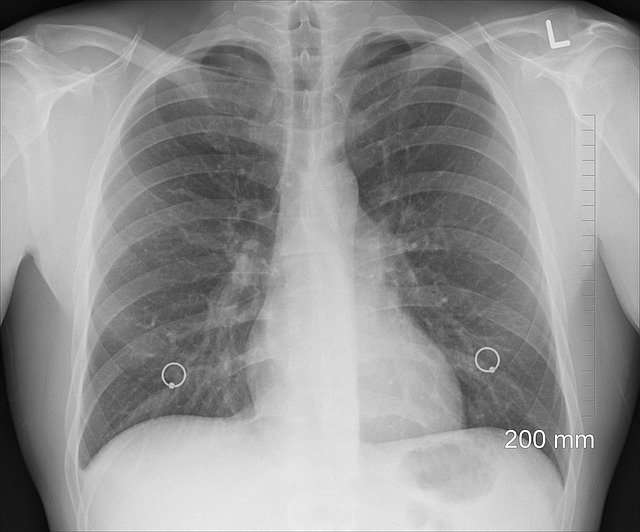Amputation Lawyer
Are you the victim of an accident resulting in amputation of one or more limbs? Losing a limb is a life-changing experience. The victim endures a lengthy recovery, involving physiotherapy and treatments designed to help them deal with the loss of mobility caused by the amputation.
The victim deals with physical and emotional trauma for years after the event, which may affect their earning ability. The accident and resulting amputation leave the victim with mounting medical bills, no income, and financial stress that impacts their family and relationships.
If you suffered an accident resulting in amputation and were not to blame for the accident, you deserve compensation. Amputation may result from complications with other injuries, such as those sustained in car accidents, workplace or construction accidents, and other high-risk activities and occupations.

Our California Law Firm specializes in recovering your financial losses. We'll ensure you receive compensation for your current and future medical expenses, lost income, and pain and suffering. Reach out to our offices for a free consultation. We'll review your case and give you professional legal advice.
What Is Amputation?
Incidents like a serious car accident can sever or severely damage limbs. Amputation is a procedure involving the removal of a limb due to traumatic injury, surgical procedures, disease, or illness. Surgeons will remove the affected limb partially or completely, depending on the extent of the patient's injuries.
When amputation occurs through a workplace or machinery accident, or reckless medical practices, the victim can sue the responsible party for losing their limb. Reach out to our law from, and we'll arrange a free consultation with an amputation lawyer.
How Common Are Amputations?
Statistics of Amputee Coalition reveal a large number of amputee patients in America. In the United States, around two million people live with a missing limb. Moreover, approximately 185,000 people yearly suffer trauma or medical conditions resulting in the loss of a limb through amputation.
In nearly 54% of amputation cases, a vascular disease like diabetes or peripheral artery disease (PAD) is responsible for the amputation. Traumatic events cause amputation in 45% of cases. An additional 2% of people experience the loss of a limb due to cancer.
Here are some other amputation statistics worth noting.
- People who lose a limb due to vascular disease survive for less than five years after the procedure in 50% of cases.
- 50% of diabetes patients who experienced a lower-limb amputation are likely to undergo another lower-limb amputation in the following three years.
- In comparison to all ethnic groups, African Americans have a 400% higher risk of experiencing an amputation.
Where Do People Commonly Experience Amputation Injuries?
Severe injuries resulting in amputation can occur in all four limbs. Amputations fall into two categories, depending on which portion of the body experiences injury. Here are the two amputation categories.
Upper Limb Amputations
This category involves the removal of body parts from the upper limbs. It includes amputation of fingers, hands, shoulders, and elbows. Statistics show that 70% of traumatic amputation injuries involve the upper limbs. Below are some examples of upper extremity amputation:
Shoulder Disarticulation
Refers to the amputation of the entire arm from the shoulder.
Transhumeral Amputation
Refers to the amputation of the arm above the elbow joint.

Transradial Amputation
Refers to amputations below the elbow joint.
Metacarpal Amputation
Refers to amputations removing the hand at the wrist.
Digit Amputation
Refers to amputation of the fingers.
Lower Limb Amputations
This category includes amputating body parts on the lower limbs, such as toes, legs, ankles, and feet. Some examples of lower extremity amputation include the following.
Transfemoral Amputation
It is a transfemoral amputation when the amputation occurs on the hip and knee area.
Transtibial Amputation
Refers to the amputation of the limb between the knee and foot.
Partial Foot Amputation
Refers to the partial amputation of the foot.
Digit Amputation
Refers to the amputation of toes.
Pelvic Amputation
Some rare injury cases involve the amputation of the entire leg. Doctors typically perform internal pelvic amputations to save the victim's legs.
Types of Amputation Injuries
The medical community categorizes amputations in various types depending on the limb affected and the severity of the injury. Here are some common types of amputation.

1. Traumatic Amputation
When the amputation occurs due to violent or traumatic incidents like motor vehicle accidents, explosions, motorcycle accidents, or catastrophic workplace accidents, traumatic amputations involve heavy blood loss and brain injury, leading to serious complications.
2. Surgical Amputations
Amputation is the last resort to save a patient's life in some medical scenarios. Surgical amputation refers to the removal of a limb through surgery. Infections like gangrene may be incurable, requiring a surgeon to remove the infected limb. Accidents that crush bones also require surgical amputation.
3. Complete Amputation
A complete amputation refers to removing an entire limb in an accident, such as a car crash or machinery accident in the workplace. If the victim receives immediate medical support, surgeons may be able to reattach the limb. Provided the victim receives prompt treatment after the accident, amputated fingers or toes can be surgically reattached in most cases.
4. Partial Amputation
In partial amputation cases, soft tissue keeps the injured limb attached to the body. If the limb isn't completely damaged, surgeons can reattach it to the body. However, the doctor might have to amputate the limb to avoid complications in serious injuries.
5. Sharp Amputation
A sharp amputation is where the victim experiences a clean severing of a limb—for example, chopping a finger off with a sharp kitchen knife while preparing vegetables. There is a good chance the surgeon can reattach the limb.
6. Avulsion Amputation
This type of amputation refers to losing a limb due to forceful overstretching. In some heavy machinery accidents, a person's limb accidentally catches on an active machine, causing a severe injury. Usually, surgeons are unable to reattach the limb.
7. Crush Amputation
When limb loss occurs by a heavy item landing on the victim's limb or limbs, crushing bones, the extensive damage means the surgeon can't reconstruct the bone. There may be severe damage to soft tissues that is irreparable. Amputating the limb is the only medical option and may help the victim avoid total paralysis.
Common Causes of Amputation
At California Law Firm, we've handled amputation cases caused by the workplace, vehicle, construction, and medical accidents. In most cases, the victim experiences amputation of one or more limbs due to the negligence of the people managing the site, bad drivers on the roads, or medical malpractice. Here are the common causes of amputation in the United States.
Vehicle Accidents
Motor vehicle accidents are the second most common cause of amputation in the United States. A car or motorcycle crash can lead to traumatic injuries like crushing, pinning, and nerve damage.
Sometimes, vehicle accidents involve careless drivers who hit pedestrians, causing severe injury to lower limbs. Such catastrophic injuries cause limb loss or severe damage requiring surgical removal or reattachment of the limb(s).

If you lost a limb due to somebody's reckless driving, contact our California Law Firm. We offer you a free consultation. We'll identify the responsible party to the accident, prove liability, and recover your medical costs, loss of income, and any economic and non-economic damages due to you.
Disease and Infections
Most amputations in the United States occur due to disease. Diabetics and smokers experience problems with blood circulation in their lower-limb extremities. As a result, the tissues turn necrotic, requiring surgical amputation.
In some cases, such as gangrene infections, amputation of the limb stops the disease from spreading into the bloodstream. Without amputation, the patient experiences the onset of sepsis and death.
Machinery Accidents
Workplace accidents involving heavy machinery are common causes of amputations. The unsafe operation of machines, collapse of heavy objects, and defective tooling can result in severe injuries such as fingers or toes trapped in conveyors, power doors, and active machines.
Our experienced personal injury lawyer can file a claim or personal injury lawsuit on your behalf. We'll prove the negligence of maintenance or safety in the workplace, identifying the responsible party. We'll calculate the settlement due to you and pursue it in court.
Medical Malpractice
In many cases, patients suffer limb loss due to medical malpractice. The negligence of a surgeon, doctor, or nurse can harm a patient severely, leading to infection or injuries that require amputation of the limb. Here are some examples of medical malpractice resulting in amputation.
- Performing surgery on the wrong body part.
- If a doctor administrates the wrong medication, they may create serious complications in the patient, leading to limb loss.
- Sometimes, the responsible nurse or hospital worker fails to sterilize equipment properly, resulting in an infection requiring amputation to save the patient.
- If a physician misdiagnoses a medical condition and prescribes the wrong medication, the patient's infection might spread, leading to amputation. Bacterial infections spread quickly if not treated properly with the right medication.
- When a nurse fails to provide the correct chart to the doctor, the patient may experience misdiagnosis. They may receive incorrect treatments resulting in exacerbation of other diseases or health conditions, such as diabetes, resulting in amputation.
California law allows victims of medical malpractice to recover compensation from the negligent parties. Our amputation attorneys can assist you in recovering medical costs, lost income, and non-economic damages such as pain and suffering.
There are several causes of amputation. Some of the other lesser-known reasons for removing a limb include the following.
- Frostbite.
- Accidents with the lawnmower.
- Burn injuries.
- Firearm malfunctions and explosive accidents.
- Dog bites.
- Slip-and-fall injuries.
- Sporting accidents.
- Truck accidents.
What Are the Long-Term Effects of Amputation?
An amputation is a severe injury. Many victims of amputation say they experience a huge reduction in quality of life. The accident and resulting amputation could leave you in a wheelchair or without an arm. You may be unable to work and lose your income, creating a financial situation where you cannot provide for yourself and your family.
Here are some of the long-term effects of experiencing an amputation.
Post Traumatic Stress Disorder
Amputation is the traumatic loss of a limb or limb, affecting the victim for the rest of their life. Most amputee patients suffer from post-traumatic disorder, requiring counseling and support to cope with their new life as an amputee.

Edema
Edema involves fluid buildup in the amputated area. The skin may swell and bloat causing a tight feeling in the affected area. Inflammation enables the blood vessels to leak and the fluid to spread to surrounding body tissues.
Phantom Pain
In 60% of cases, the patient feels phantom pain after amputation. When an amputee feels pain from an amputated body part that no longer exists, the condition is called Phantom Limb Pain or PLP. It's a neuropathic pain, making the patient feel emotionally uncomfortable.
Infections
Amputated wounds require proper maintenance, hygiene, and skincare. Otherwise, they may experience infection around the amputation area. Typically the risk of infection subsides as the tissues in the amputated area heal.
Weakness in Muscles and Joints
Accidents that cause amputations can severely damage the muscular and skeletal system. The victim must depend on prosthetic limbs and dramatic changes to how they live their life. At California Law Firm, our accident lawyers evaluate these long-term effects. We'll file a personal injury claim to recover medical costs for any complications arising post-amputation.
How to Deal with Amputation Injury?
Amputation is a life-long trauma. Victims may never return to the same quality of life they had before the accident. However, you deserve compensation for your amputation injuries if someone else is responsible for your accident.
Many amputation victims don't realize the process of recovering economic and non-economic losses from the responsible party, and some aren't even aware they can claim compensation. Here is the correct procedure for filing a legal claim against the responsible party.
Take Proper Treatment
In the wake of the amputation, you'll need effective medical care. Don't worry about the costs of the treatment at this time. Your claim will cover all medical expenses relating to your injury. Your medical team will be responsible for the following.
- Addressing medical conditions specific to amputation and performing surgery.
- Providing rehabilitation and proper exercise program for pain management.
- Prescribing appropriate medication and assuring the readiness of prosthetic devices.
- Prescribe prosthetics when needed and provide functional prosthetic components.
File a Report
Suppose a reckless driver, co-worker, medical service provider, or machinery provider caused the amputation injury. In that case, California law allows you to file amputation lawsuits against the negligent party responsible for your accident. Speak to an amputation lawyer, and we'll help you file the right report with the relevant authorities.
Source Evidence
Your amputation lawyer will visit the accident site and reconstruct the accident leading up to your injury. We'll review the area and look for security cameras that could offer evidence proving neglect. We can issue official documents to recover the footage if the owner doesn't want to provide it willingly.
We'll interview witnesses and make statements. We'll also access the official police report and speak with medical professionals regarding your injuries. After completing our due diligence, we'll build your case, file your claim, and take the negligent party to court to recover your settlement.

Consult an Accident Lawyer
California law has a statute of limitations on the period you can file a personal injury claim against the responsible party. Our amputation lawyer will advise you on the statute of limitations and how it applies to your case. If the accident occurred months or years ago, book a consultation with us to discuss your case.
How Can an Amputation Injury Lawyer at California Law Firm Help?
At California Law Firm, we work tirelessly for our clients, and we bring justice to other people's negligence. Our experienced personal injury attorneys will attend to you with the utmost attention and inform you of the lawful recourse available as an amputation injury victim. Here are our team's initial steps when you appoint us as legal counsel.
- Interview the amputee victim and collect accurate information about the accident causing the amputation.
- Gather evidence and build a case.
- Ensure the responsible party covers the initial medical bills and prosthetic devices for the victim.
- File a personal injury or amputation lawsuit against the responsible party.
You can demand a personal injury claim from the following parties.
- The responsible driver in a motor vehicle accident.
- Manufacturers of the defective equipment that caused the machinery accident.
- Property owners accountable for lawn mowing amputations.
- Company owners who failed to create workplace safety.
- Negligent health care providers responsible for medical malpractice.
After filing a lawsuit, our amputation lawyers advocate on your behalf to recover personal injury claims covering economic and non-economic losses. Our law firm will help you to recover the following in your settlement.
Medical Expenses
Amputation injuries require costly medical treatments. The bills usually include room visits, surgery expenses, diagnostic tests, post-traumatic mental and physical therapy fees, home health care, prosthetics, and more. Our amputation attorneys help you receive fair compensation for your past, present, and future long-term medical expenses.
Lost Wages
Lost wages refer to the income that you lose due to traumatic amputations. Amputee victims often lose their jobs or chance of promotion. Fortunately, California is one of the states where the victim's compensation isn't limited to prosthetic bills. California law allows complete recovery of lost wages of the victims lost wages. An amputation lawyer at our law firm recovers all your past and future lost wages.
Home Remodeling Expenses
Suppose the amputation restricts your mobility and confines you to a wheelchair. In that case, your house might need remodeling to allow the movement of wheelchairs and other occupational therapy devices throughout the home. Your accident lawyer recovers these expenses for you.
Contact Us
If you suffer an amputation injury due to the negligence of others, you deserve compensation for your injuries. Reach out to our California Law Firm and book an appointment with our legal team. We have specialist amputation lawyers available for a free consultation.